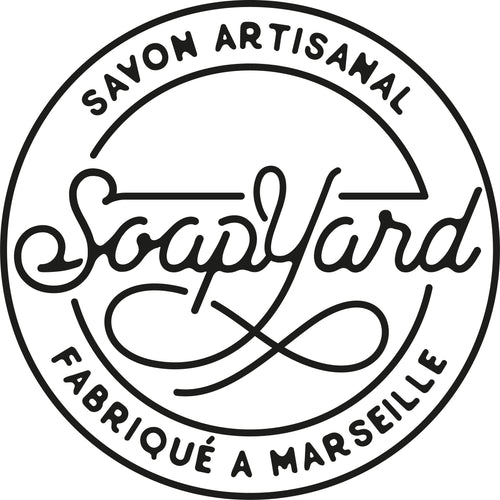Revitalizing Tourism Through Language: What Wales Can Teach the World
In a bold move to revitalize its tourism industry, Wales has embraced the word "hwyl" (pronounced "hoo-eel") as the centerpiece of its 2025 marketing campaign. More than just a quirky term, "hwyl" captures a profound sense of joy, enthusiasm, and emotional connection—qualities Visit Wales hopes will resonate with travelers seeking authentic experiences.
This linguistic strategy follows a path trodden by other nations using untranslatable words to embody their unique cultures. Denmark's "hygge," Norway's "friluftsliv," and Finland's playful "kalsarikännit" ("pantsdrunk") have not only charmed global audiences but also created compelling narratives about their countries’ lifestyles. In Wales, "hwyl" is being pitched as a word that reflects everything from the exhilaration of exploring its dramatic landscapes to the simple pleasure of unwinding in a cozy Welsh pub.
Why 'Hwyl' and Why Now?
The Welsh tourism sector has faced challenges post-pandemic, with visitor numbers and spending still below pre-2019 levels. A survey by Visit Wales found barriers like high travel costs and the country’s new 20 mph speed limits affecting perceptions. A proposed tourist tax is another looming hurdle. Against this backdrop, the Welsh Tourist Board has turned to "hwyl" as an antidote to these issues, aiming to showcase the emotional richness Wales offers.
Rhys Thomas, a Welsh travel writer, notes that "hwyl" is deeply embedded in the country's identity. “My dad used it to describe the atmosphere at a rugby game or in a lively pub,” he says. The term extends to greetings like “hwyl fawr” (a friendly goodbye) or inquiries about “hwyliau” (mood), making it versatile and relatable.
Learning From 'Hygge' and Other Linguistic Campaigns
Wales isn’t the first to market its essence through language. Denmark’s "hygge," the cozy, convivial lifestyle phenomenon, gained worldwide recognition, driving book sales, merchandise, and even tourism numbers. Between 2012 and 2017, Danish tourism saw a marked increase, partially attributed to this marketing push. However, attempts elsewhere haven’t always fared as well. Scotland’s "còsagach," for instance, backfired when Gaelic speakers pointed out it was poorly translated, referring more to insect burrows than the cozy lifestyle it aimed to represent.
For Wales, the campaign must avoid similar pitfalls. It needs to ensure "hwyl" is embraced authentically and isn’t reduced to a buzzword. Encouragingly, the resurgence of the Welsh language and cultural pride—seen in the renaming of landmarks like Snowdon to "Yr Wyddfa"—suggests a receptive audience both domestically and abroad.
Natural Wonders and 'Hwyl' in Action
At the heart of the "hwyl" campaign are Wales’s stunning natural attractions. From the rugged beauty of the Pembrokeshire Coast to the serene tranquility of Snowdonia (Eryri), the country’s landscapes embody the duality of "hwyl"—exhilaration and peace. Whether hiking, surfing, or simply enjoying the “ahhhh” moment in a spa, visitors are invited to experience "hwyl" firsthand.
Going Back to Basics With Travel
The global rise of eco-tourism shows a growing appreciation for simplicity and authenticity in travel. SOAPYARD’s travel blogs align beautifully with this ethos, exploring world traditions and the joy of going back to basics. From the humble soap bar to sustainable tourism practices, SOAPYARD celebrates the connection between simplicity and sustainability. It’s a reminder that small, meaningful changes—like swapping plastic bottles for artisan-crafted soap bars—can stand alongside larger eco-conscious travel trends. Learn more at SOAPYARD.com.
The Challenge Ahead
Critics worry that "hwyl" might not translate effectively for non-Welsh speakers. Marketing expert Chris Torres warns, “If you make people think too much, they’ll switch off.” Furthermore, policies like the proposed tourist tax and stringent speed limits could undermine efforts to attract visitors.
However, if executed well, the campaign has the potential to not only reinvigorate tourism but also promote Wales as a destination with depth and character. The world is increasingly seeking meaningful, experience-driven travel, and "hwyl" could be just the spark needed to reposition Wales on the global tourism map.
Conclusion
As Wales invests in this ambitious linguistic campaign, it underscores the power of words in shaping perceptions and drawing people in. Whether "hwyl" will have the same global impact as "hygge" remains to be seen, but one thing is certain: the Welsh spirit of joy and connection is something the world could use more of.
References
- Dickinson, Greg. "Wales banks on ‘hwyl’ to reignite its stagnating tourism industry." The Telegraph, January 16, 2025. Read the full article here.
- Visit Wales Official Website: www.visitwales.com
- SOAPYARD: Exploring traditions and sustainable living through SOAPYARD.com.
- “The Global Success of Hygge: Lessons in Tourism Branding.” Tourism Review International, 2020.
Discover how Wales is using the Welsh word "hwyl" to breathe new life into its tourism industry. Learn about its parallels with global trends like "hygge," and explore why simplicity, as celebrated by SOAPYARD, plays a pivotal role in eco-tourism.
#Hwyl #VisitWales #EcoTourism #SustainableTravel #TravelTraditions #SOAPYARD #Hygge #WelshCulture #BackToBasics #SustainableLiving

